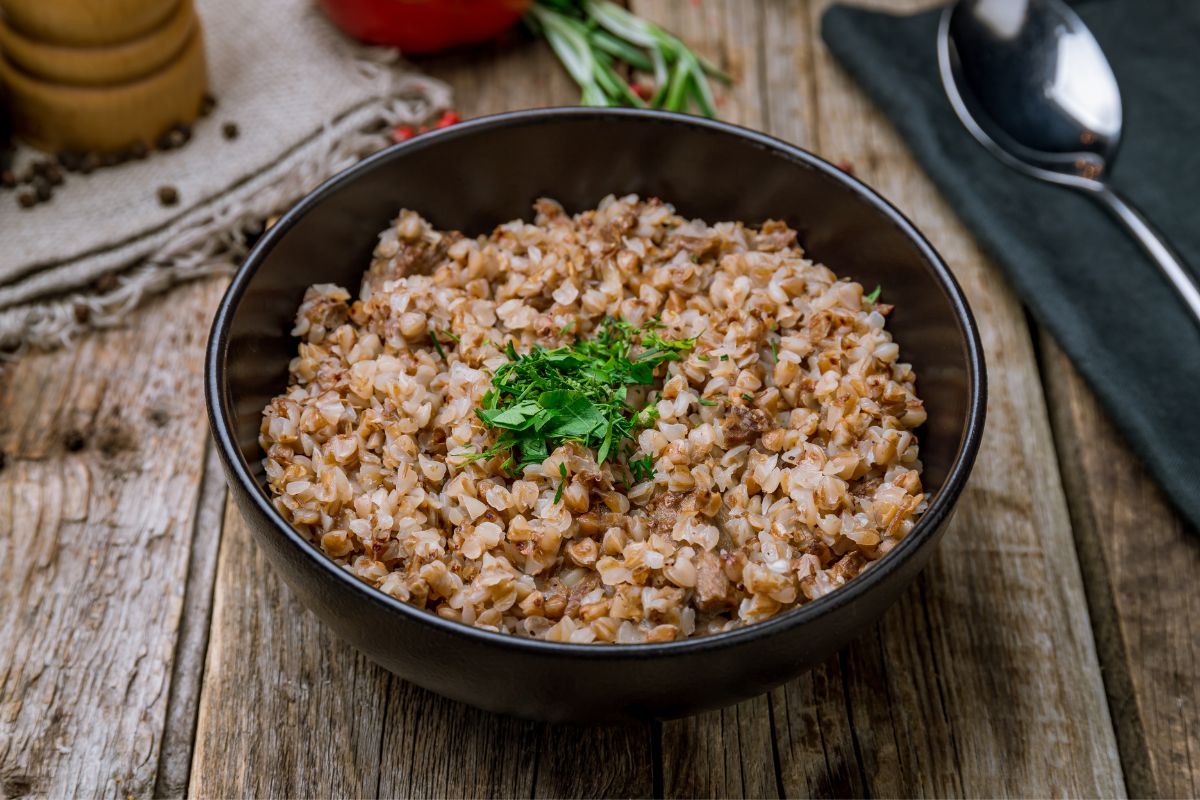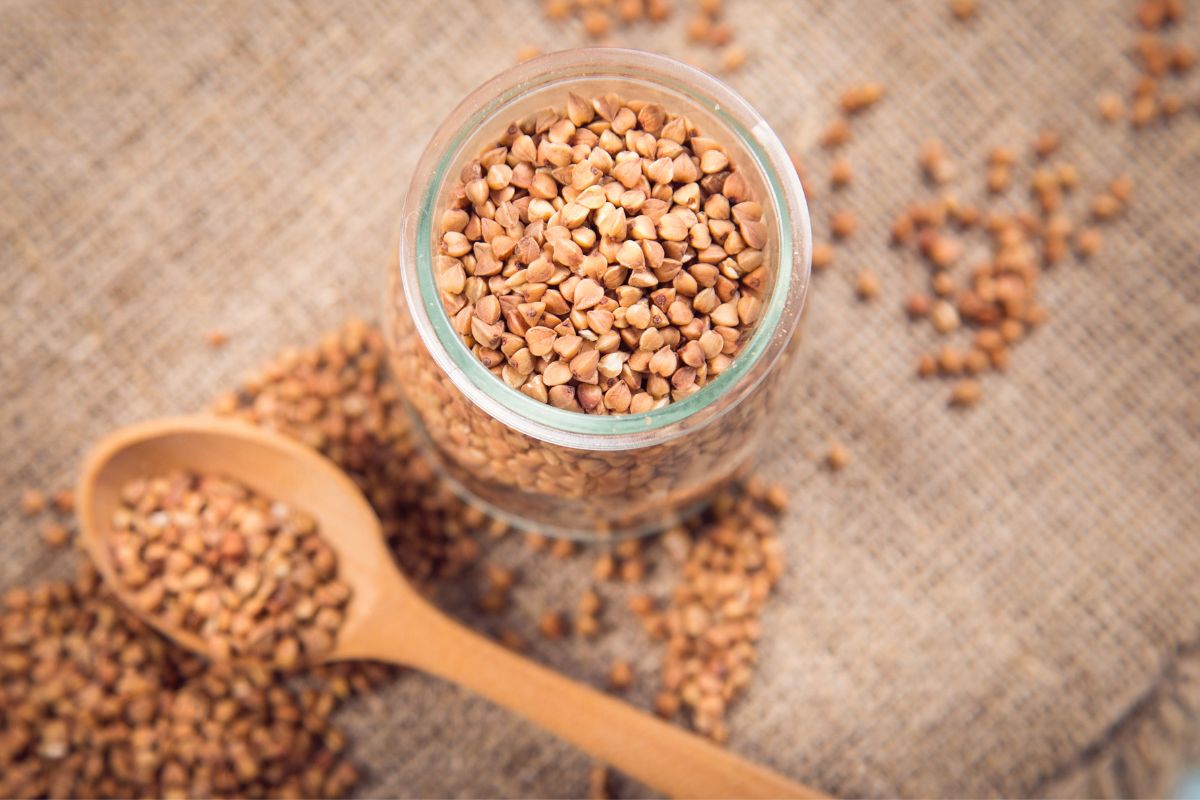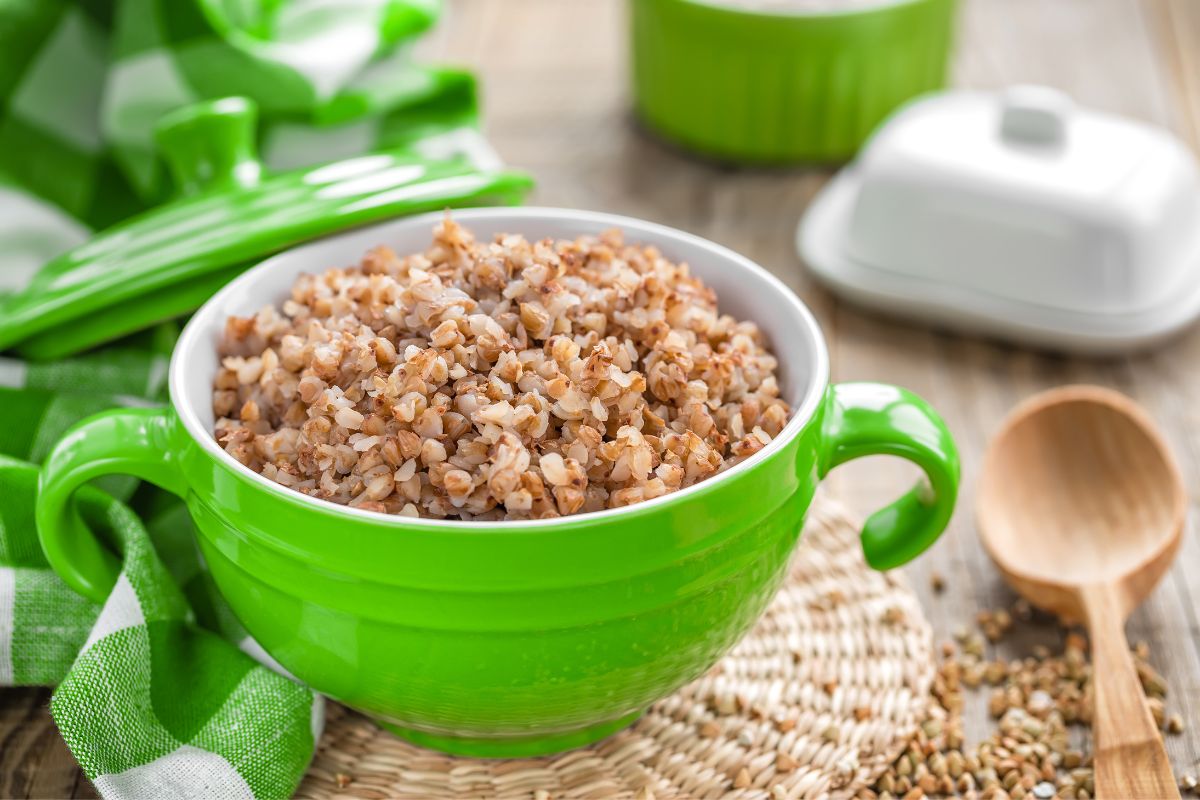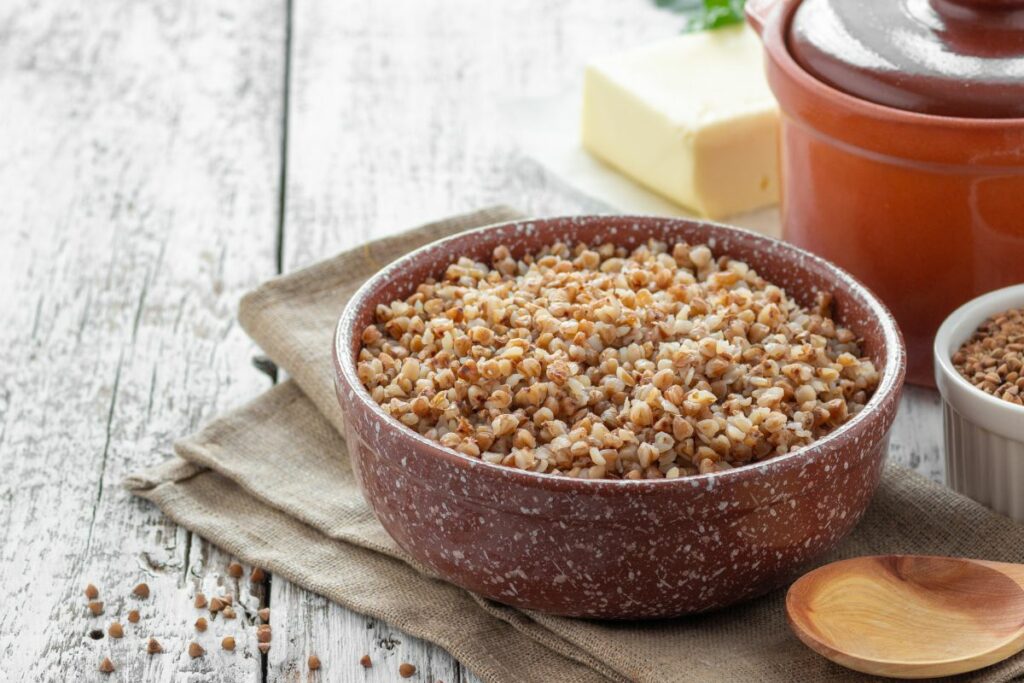Buckwheat is a pseudocereal which are seeds that are eaten as cereal grains, but they don’t grow on grasses and plants.
It is a grain that is completely gluten-free and filled with health benefits. Due to its name, many believe that it contains wheat and can cause inflammation in the body. However, this grain is largely misunderstood, with many failing to understand what exactly it is.
This article is going to discuss what buckwheat is, as well as the many health benefits that are associated with it.
It Doesn’t Contain Wheat
The common misconception about this grain is that it contains wheat due to its name. Wheat is also a substance that can’t be consumed by those who have an intolerance to gluten, and it can cause inflammation.
However, buckwheat contains no wheat and is completely gluten-free. It is similar to quinoa and amaranth, and it can be bought as whole groats, raw, toasted, or even as flour.
Nutritional Profile

Although buckwheat is predominantly made up of carbs, there are other nutrients present, such as antioxidants, proteins, and minerals.
Buckwheat is a good addition to diets, as its nutritional value is higher than many other grains. 100 grams of raw buckwheat contains 13.3 grams of protein, 71.5 grams of carbs, 10 grams of fiber, 3.4 grams of fat, and zero sugar!
Fiber
This grain contains a good amount of fiber, which is very good for colon health. The fiber is found in the husk of buckwheat, which is what covers the groat.
The husk is kept in dark buckwheat flour, which is what gives it its flavor. It also has resistant starch in it, which is fermented by the gut bacteria in the colon.
These bacteria, in turn, produce fatty acids, one of which is known as butyrate.
This fatty acid is a good form of nutrition for the cells that line the colon, decreasing the risk of colon cancer, and improving gut health.
Vitamins And Minerals
Buckwheat has many beneficial minerals, more so than other grains such as rice, corn, and wheat.
Tartary buckwheat is the variety that contains the most nutrients, but common buckwheat is still filled with some wonderful minerals.
Manganese is found in large amounts in buckwheat. This mineral is crucial for healthy metabolism, growth, and development.
Another mineral that can be found in buckwheat is magnesium. If you consume a sufficient amount of magnesium, it can reduce your risk of developing heart disease and type 2 diabetes.
Cooper is also present in buckwheat and can really have benefits for heart health.
You’ll also find plenty of iron in buckwheat, and a deficiency in iron can lead to the development of anemia. Therefore, it is important to have a good amount of iron in your diet.
Phosphorus is also present in this grain and is very good for maintaining the tissues in the body.
Carbohydrates
As mentioned earlier, buckwheat is mainly made up of carbs. It has a relatively low glycemic index, which means it should not cause abnormal spikes in blood sugar levels.
This makes it a great addition to all kinds of meals, as it will add substance without giving you a drop in energy levels.
Protein
There’s a small amount of protein in buckwheat. It has a good amount of amino acids, which is what makes it a high-quality source of protein.
In studies done on animals, buckwheat has been shown to be effective when it comes to lowering blood cholesterol, reducing the risk of developing gallstones, and can reduce the risk of developing colon cancer.
Health Benefits Of Buckwheat

Learning about the nutritional profile of buckwheat, it’s no surprise to learn that there are numerous health benefits of adding it to your diet.
This article will now outline some of these benefits.
Blood Sugar Control
If one experiences high blood sugar, it can result in diseases such as diabetes. Therefore, it is very important to keep an eye on your blood sugar levels after eating.
As buckwheat has a low GI, it is likely to allow for more blood sugar control. Therefore, you will not experience a spike in blood sugar levels after eating it.
It is also completely safe for those who have type 2 diabetes to eat it.
A Healthy Heart
As buckwheat is bursting with so many minerals, it is a good option for increasing heart health.
Magnesium, copper, fiber, and the proteins that are present within it, all contribute positively to the heart.
It also contains rutin, which is an antioxidant that has some incredible benefits. This antioxidant has the ability to prevent blood clots from forming in the body, reducing inflammation and blood pressure.
This wonderful grain has also been shown to improve your blood lipid profile. A poor blood lipid profile has close links with heart disease, so it can therefore decrease your risk of these kinds of diseases.
Are There Any Downsides?
Fortunately, buckwheat is not commonly associated with many negative effects. However, some individuals may experience allergies to it.
Allergic cross-reactivity makes it more common for those who already have allergies to latex and rice, to be allergic to buckwheat.
Symptoms of these allergies include swelling, skin rashes, and digestive issues.
Is Buckwheat An Inflammatory Food?

Buckwheat is not an inflammatory food. It contains no gluten, and it is filled with various healthy nutrients such as proteins, minerals, and a good amount of carbs.
On the contrary, research has suggested that buckwheat has anti-inflammatory properties due to the healthy minerals that are present in the grain.
Therefore, it is believed that the misconception that buckwheat causes inflammation, is due to the word ‘wheat’ in the name.
Final Thoughts
To conclude, buckwheat is a pseudocereal which is a grain that doesn’t grow on grasses, like other grains, but it is still used, and consumed in the same way.
It is completely gluten-free, so those with intolerances to this substance can consume it without any issues.
Due to the vast amount of healthy nutrients that are present in buckwheat, consuming this grain is linked to an array of health benefits.
Some of these include improved blood sugar levels, heart health, and a healthier body in general.
Buckwheat is a wonderful addition to all kinds of meals and cuisines, and its hefty carb content makes it a very substantial grain.
This grain does not cause inflammation and actually has anti-inflammatory properties. We hope this article has provided you with a good amount of information on buckwheat and has inspired you to add it to your diet!
Frequently Asked Questions
How Do You Cook Buckwheat?
If you are using buckwheat grains or seeds, then they can be cooked by simmering them until they become soft. Many prefer to soak them before cooking, as this makes them more crunchy when cooked.
However, it is common to find buckwheat in flour form. This is a great gluten-free alternative to regular flour and can be used in pancakes, and other baked goods.
What Does Buckwheat Taste Like?
Buckwheat has a bitter, nutty flavor. It tastes similar to rye or wholewheat flour. Due to its nuttiness, it is commonly added to salads, burgers, and stews.








